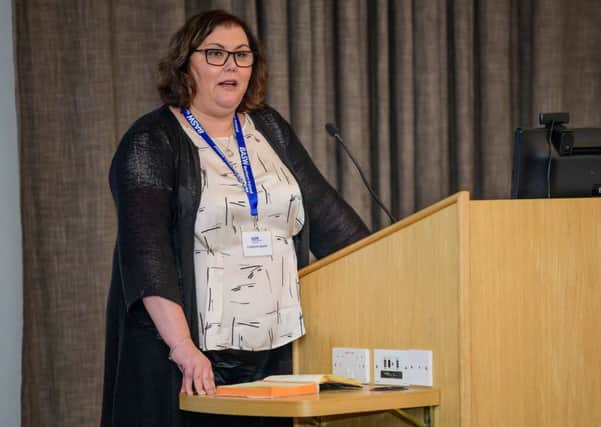Report records social workers’ stories of courage and resilience


Carolyn Ewart, national director of the British Association of Social Workers Northern Ireland, was speaking about her personal experiences ahead of the launch of new research which shines a light on the role of social workers during The Troubles.
Ms Ewart, who is still a registered social worker, grew up in Randalstown and qualified in England before taking up a post in north Belfast.
Advertisement
Hide AdAdvertisement
Hide AdWorking during the Drumcree riots was a real eye-opener for the recently-qualified social worker, then aged in her early 20s. But she quickly realised her older colleagues had experienced similar, and much worse, over many years.
“You were having to negotiate your way around road blocks, some of which you were stopped at by men in balaclavas and asked who you were and what your business was. Once they checked you out and found out you were from ‘the welfare’ as they called it you were given permission to go about your business,” she said.
“One of my first experiences was picking up a child for contact. The child was living in care and was going to visit his mum. I had the child in the car and we had to traverse several flashpoints. There was lots of disruption and chaos along the road. There had been significant rioting the night before and we were stopped at a checkpoint, had to drive round burning cars and buses, and all the while you were responsible for this child in your car. I remember coming back and saying to my colleagues ‘I can barely believe that’ and they just said ‘well yeah’. It was almost like a ‘so what’. You just got on with it.
“What would be very abnormal to everyone else quickly became the norm here and people just adjusted to it.”
Advertisement
Hide AdAdvertisement
Hide AdMs Ewart recounted her own story ahead of the publication of findings of pioneering research exploring the role social workers played supporting vulnerable children and adults during the conflict.
The Voices of Social Work Through The Troubles report, launched at the Ulster Museum on Thursday, records the remarkable experiences of social workers during a time of shootings, bombings, bomb scares and public disorder.
The two-year study involved a survey of more than 100 social workers who practiced during the period 1969–1998.
It reveals the impact working in such trying circumstances had on them professionally and personally, and tells how they displayed “courage, resilience and an unwavering commitment to service users” despite the unspeakable atrocities going on around them.